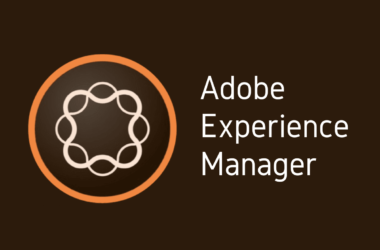Introduction
Burnout has become a buzzword in today’s fast-paced world, but nowhere is it more pervasive than in the tech industry. With long hours, high expectations, and the relentless pace of innovation, software developers are often most susceptible to this form of extreme stress and exhaustion. Yet, despite its prevalence, it remains a somewhat taboo subject, brushed under the rug in the quest for the next big launch or product update.
Mental health for software developers isn’t just an optional extra; it’s a critical component of both personal well-being and professional success. Ignoring signs of burnout doesn’t just affect job performance—it can have long-lasting implications on one’s emotional health, relationships, and overall quality of life.
In this blog post, we aim to lift the veil on this pressing issue by diving deep into the various aspects that contribute to burnout among software developers. We’ll explore the signs that indicate you’re on the road to burnout and provide actionable advice on how to prevent it. Additionally, we’ll touch upon effective stress management techniques, the importance of work-life balance, and long-term strategies for maintaining a healthy, sustainable career in tech.
So, whether you’re a seasoned developer feeling the strains of the job or a newbie trying to navigate the stressful maze of the tech world, read on. This guide aims to equip you with the tools you need to preserve your mental health while thriving in your career.
Recognizing Signs of Burnout
Burnout Signs
Burnout can be deceptive, often manifesting subtly before its effects become too pronounced to ignore. Some common signs of burnout among software developers include:
- Constant fatigue and lack of energy
- Reduced productivity and work performance
- Increased irritability or emotional volatility
- Loss of enthusiasm and motivation
- Difficulty concentrating or making decisions
- Physical symptoms like headaches or stomach issues
Emotional Wellbeing for Developers
The emotional wellbeing of software developers is often overshadowed by the focus on technical skill sets and project deadlines. It’s easy to forget that developers are not just coding machines but humans with a range of emotions and needs. Emotional wellbeing is just as important as professional skills. Without emotional balance, your performance and interpersonal relationships at work can suffer dramatically.
The Importance of Self-awareness
Self-awareness is the first step in recognizing and managing burnout. It involves regularly checking in with yourself to gauge your emotional and physical state. Do you feel tired even after a full night’s sleep? Are you becoming increasingly disengaged from your work? These may be warning signs that shouldn’t be ignored. Self-awareness also involves recognizing your limitations, setting boundaries, and knowing when to seek help or make a change.
Action Steps or Checklist
Here’s a brief checklist to help you monitor for signs of burnout:
- Weekly Self-Assessment: Take a few minutes every week to assess your mental and emotional state.
- Set Boundaries: Ensure you have clear work-life boundaries to prevent professional responsibilities from infringing on personal time.
- Reach Out: Don’t hesitate to talk to friends, family, or even professionals about what you’re going through.
- Be Mindful of Physical Symptoms: Pay attention to any physical symptoms that may be related to stress or overwork.
- Take Breaks: Make time for short breaks during work to clear your mind.
- Consult with HR or a Manager: If burnout symptoms persist or worsen, it may be beneficial to consult with HR or your manager for additional support or accommodations.
Recognizing the signs of burnout and taking proactive steps to manage your emotional wellbeing are crucial for a fulfilling, long-lasting career in software development. Burnout is not a sign of weakness; it’s a warning signal that something needs to change. By identifying its symptoms early, you stand a better chance of making the adjustments necessary to preserve both your mental health and your career trajectory.
The Importance of Work-Life Balance
What is Work-Life Balance?
Work-life balance is the equilibrium between professional obligations and personal responsibilities, along with self-care and recreational activities. In the tech industry, where the line between work and life can often blur due to tight deadlines and remote working conditions, achieving this balance becomes even more critical. Having a healthy work-life balance is not about shirking responsibilities but about managing your time efficiently so you can also focus on your well-being and relationships outside work.
Developer Happiness
A well-balanced work-life equation significantly contributes to developer happiness. When you are content in your personal life, it reflects positively in your professional sphere and vice versa. A happy developer is often more productive, creative, and better at problem-solving. Plus, job satisfaction tends to be higher, reducing the likelihood of looking for opportunities elsewhere. Therefore, it’s safe to say that maintaining a work-life balance directly correlates with long-term happiness in your career.
Sustainable Work Practices
Sustainability in work practices refers to creating a work environment and habits that you can maintain over a long period without negatively impacting your health or quality of life. This can include:
- Setting realistic expectations and deadlines
- Taking regular breaks to recharge
- Prioritizing tasks effectively
- Creating a dedicated workspace that minimizes distractions
- Utilizing productivity tools to streamline your work
- Ensuring time for physical exercise and social interactions
These sustainable practices help prevent burnout and contribute to a more balanced lifestyle, benefitting both your personal life and your career.
Practical Tips for Achieving a Balanced Life
To foster a more balanced work-life situation, here are some practical tips:
- Time Management: Utilize tools like calendars and to-do lists to allocate specific times for work tasks and personal activities.
- Set Boundaries: Make it clear when your workday starts and ends. Avoid checking emails or participating in work-related activities outside of these hours.
- Physical Activity: Incorporate some form of physical exercise into your routine, even if it’s just a 20-minute walk.
- Social Connections: Make time for friends and family. Social interactions are vital for mental health.
- Mindfulness and Relaxation: Use mindfulness techniques or engage in activities that relax you, such as reading or listening to music.
- Weekend Planning: Plan your weekends to include activities that are not related to work, providing you a mental break and ensuring that you’re not solely identified by your profession.
Achieving a balanced life is not a one-time effort but a continuous process. It requires conscientious planning, commitment, and regular reassessment. But the rewards—a more fulfilling, happier life and a more satisfying, sustainable career—are well worth the effort.
Time Management and Prioritization
Developer Productivity
Productivity is often considered the holy grail in the life of a software developer. It’s not just about churning out lines of code but about accomplishing meaningful work without sacrificing quality. Developer productivity is directly tied to effective time management and prioritization. The more efficient you are with your time, the more you can focus on solving complex problems, improving your skills, and even carving out time for personal pursuits that can help avoid burnout.
Importance of Time Management
Effective time management is an essential skill that every software developer should cultivate. Poor time management can lead to stress, missed deadlines, and ultimately, burnout. By managing your time well, you can create a balanced work schedule that allows you to meet professional obligations while also prioritizing your health and well-being.
Tools and Techniques for Efficient Work
In today’s digital age, there are numerous tools designed to help you manage your time and workload effectively. Some popular choices include:
- Task Managers: Apps like Todoist, Asana, or Jira can help you track tasks, deadlines, and progress.
- Time Trackers: Tools like Toggl can help you monitor how much time you’re spending on various activities.
- Calendar Apps: Using Google Calendar or Outlook effectively can help you plan out your day, week, or even month in advance.
- The Pomodoro Technique: This time-management method involves breaking work into intervals (usually 25 minutes), separated by short breaks.
- Eisenhower Matrix: This is a prioritization framework that helps you decide on and prioritize tasks by their urgency and importance.
How to Avoid Overwork
Managing your time efficiently is also about knowing when to stop. Here are some tips on how to avoid overworking yourself:
- Set Clear Work Hours: Stick to a specific start and end time each day, and don’t let work spill over into your personal time.
- Prioritize Tasks: Not everything that’s urgent is important. Learn to prioritize tasks based on their impact and deadline.
- Take Breaks: Schedule short breaks during the day to stretch, walk, or just relax.
- Learn to Say No: It’s okay to decline additional tasks or responsibilities if you feel they will lead to overwork or stress.
- Seek Help: If the workload is too much to handle, don’t hesitate to delegate tasks or ask for help.
By adopting these time management and prioritization techniques, you can enhance your productivity without falling into the trap of overwork, thus paving the way for a balanced, fulfilling career.
Coping Mechanisms and Stress Management
Stress Management Techniques
Stress is an inevitable part of any profession, and software development is no exception. However, how you manage stress can make a significant difference in your job satisfaction and overall well-being. Some effective stress management techniques include:
- Deep Breathing: Simple deep-breathing exercises can help you calm your mind.
- Physical Exercise: Physical activity releases endorphins, which naturally combats stress.
- Time Off: Sometimes, taking a step back can provide you with a new perspective and decrease stress levels.
Mindfulness for Developers
Mindfulness involves being fully present and engaged in the moment, a practice that can help software developers significantly. Mindfulness can help improve focus, reduce stress, and increase emotional intelligence. Here are some ways to integrate mindfulness into your daily routine:
- Mindful Coding: Try to be completely present when coding, ignoring distractions and focusing solely on the task at hand.
- Mindful Breaks: Take short breaks to engage in mindfulness activities, such as deep breathing or a quick meditation session.
- Mindful Communication: Practice mindfulness when interacting with colleagues or clients to build better relationships and reduce stress.
Self-Care for Developers
Self-care goes beyond merely taking breaks or avoiding overwork; it’s about engaging in activities that nourish your body, mind, and soul. Here are some self-care tips specifically tailored for developers:
- Regular Exercise: Aim for at least 30 minutes of moderate exercise most days of the week.
- Healthy Eating: Nutrition plays a significant role in how you feel. Opt for balanced meals that include a mix of macronutrients.
- Hobbies: Engage in activities that you enjoy and that make you feel good, whether it’s reading, playing a musical instrument, or any other hobby.
Stress Relief Techniques for Developers
Stress relief and stress management may seem similar, but they serve different functions. While stress management is about controlling your reaction to stressors, stress relief is about finding ways to relax and recharge. Here are some stress relief techniques for developers:
- Tech Detox: Unplug from all tech gadgets for a specified period, be it an hour or an entire weekend.
- Nature Walks: Spending time in nature can help reset your mind.
- Music Therapy: Listening to calming music can significantly lower stress levels.
- Aromatherapy: Scents like lavender and chamomile have been found to be relaxing.
By adopting these coping mechanisms and stress management techniques, you’re not just preventing burnout but also promoting a healthier, more balanced lifestyle that benefits both your professional and personal life.
Remote Work and Its Challenges
Remote Work and Burnout
The trend of remote work has been amplified by recent global events, leading to many software developers transitioning to this work model. While remote work offers numerous advantages such as flexibility and zero commuting time, it also poses unique challenges, including an increased risk of burnout. The lack of a defined work environment can make it hard to separate personal and professional life, leading to extended work hours and diminished rest time.
Challenges and Benefits of Remote Work
Challenges:
- Isolation: The lack of social interaction can lead to feelings of loneliness and disconnection.
- Distractions: Home environments may not always be conducive to focused work.
- Overwork: Without the physical separation between office and home, one might find it difficult to “switch off” from work mode, leading to overwork.
Benefits:
- Flexibility: You have the freedom to set your work hours to some extent.
- No Commute: Saving time on commuting allows for a better work-life balance.
- Personal Comfort: You can create a personalized work environment at home.
Strategies for Remote Work to Avoid Burnout
- Set a Routine: Create a daily routine to add structure to your day, designating specific times for work, breaks, and leisure activities.
- Designate a Workspace: Having a dedicated workspace can help mentally prepare you for a productive workday.
- Use Technology Wisely: Utilize collaboration tools to stay connected with your team, but also know when to disconnect to avoid feeling overwhelmed.
- Take Regular Breaks: Step away from your computer every hour or so to stretch, grab a snack, or simply relax.
- Set Boundaries: Make it clear to yourself and others that work time and personal time are separate, even if you’re operating from the same space.
- Social Interaction: Regularly engage in virtual social activities, like team meetings or virtual coffee breaks, to maintain a sense of community.
- Seek Professional Help: If feelings of stress and burnout persist, consider talking to a mental health professional for specialized guidance.
By recognizing the challenges and benefits of remote work and implementing strategies to manage potential stressors, you can create a work environment that is both productive and sustainable, reducing the likelihood of burnout.
Long-Term Career Sustainability
Career Longevity in Tech
The fast-paced nature of the tech industry can often lead to career burnout much earlier compared to other fields. However, career longevity is not just about surviving but thriving in your role over an extended period. Longevity in tech means continuously adapting to new technologies, maintaining a healthy work-life balance, and avoiding burnout so that you can enjoy a fulfilling career for years to come.
How to Keep Growing Without Burning Out
- Continuous Learning: Keep up with the latest technologies, but do it at a pace that’s comfortable for you. Allocate specific times for professional development so that it doesn’t interfere with your personal life.
- Networking: Building a strong professional network can provide emotional support, career guidance, and job opportunities. Attend industry events, webinars, and online forums, but be mindful of not overcommitting your time.
- Take Sabbaticals: If possible, consider taking extended breaks from work to recharge and pursue personal interests. This not only rejuvenates you but also provides fresh perspectives that can be invaluable in your professional life.
- Celebrate Small Wins: Career growth is a marathon, not a sprint. Take time to celebrate small achievements along the way to keep yourself motivated.
Burnout Prevention for the Long Run
- Regular Check-ins: Regularly evaluate your mental and emotional state. Are you constantly feeling stressed or anxious? If so, it might be time to reassess your workload or work environment.
- Set Realistic Goals: Ambition is good, but over-ambition can lead to burnout. Set achievable goals that align with your career path as well as your personal life.
- Work-Life Balance: This can’t be stressed enough. Maintain a healthy balance between your work and personal life to ensure long-term career sustainability.
- Know When to Seek Help: There’s no shame in asking for help, whether it’s from your manager, HR, or a mental health professional. Early intervention can prevent more severe forms of burnout.
- Revisit and Adjust: Your career is going to span decades. What worked for you five years ago might not work now. Continually revisit your work habits, stress management techniques, and career goals to adapt to your evolving needs and responsibilities.
By implementing these strategies for growth and burnout prevention, you can aim for a fulfilling and sustainable career in tech that not only allows you to excel professionally but also contributes positively to your overall well-being.
Tips and Best Practices
How to Manage Stress as a Software Developer
Managing stress is critical for long-term career success and personal well-being. Here are some targeted ways to manage stress in your role as a software developer:
- Time Blocking: Allocate specific periods for different types of tasks. This aids in better focus and less context-switching, reducing stress.
- Peer Reviews: Don’t hesitate to ask for code reviews. This not only improves code quality but can also act as a stress buster, knowing that another pair of eyes has scanned your work.
- Take Short Breaks: Even a 5-minute break to step away from your screen can do wonders for your stress levels.
Tips for Avoiding Burnout in the Tech Industry
Burnout is a severe issue in the tech industry, and here’s how you can avoid it:
- Regular Physical Activity: Incorporate some form of physical activity into your daily routine.
- Digital Detox: Spend some time away from screens every day. This could be a tech-free dinner or no devices in the bedroom rule.
- Talk About It: If you feel the onset of burnout, talk to someone—whether it’s friends, family, or mental health professionals.
Best Practices for Healthy Software Development
Healthy software development isn’t just about writing clean code; it’s about maintaining a healthy lifestyle too. Some best practices include:
- Follow the DRY Principle: “Don’t Repeat Yourself” to reduce redundancy and the possibility of errors, making the coding process less stressful.
- Regular Health Checks: Just like your code, your health requires regular check-ups too. Make sure you don’t skip them.
- Ergonomic Work Setup: Invest in a comfortable chair and proper desk setup to prevent physical strain.
Strategies to Maintain Work-Life Balance for Developers
Maintaining a work-life balance is crucial for long-term career sustainability and happiness. Here are some strategies tailored for developers:
- Flexible Work Hours: If your company allows, take advantage of flexible work hours to balance your personal and professional commitments.
- Set Boundaries: Make sure to set clear boundaries between work time and personal time, even if you’re working from home.
- Mindfulness and Relaxation: Incorporate mindfulness techniques like meditation to help you relax during off-hours, making it easier to maintain a work-life balance.
By implementing these tips and best practices, you can significantly reduce stress, avoid burnout, and pave the way for a long and fulfilling career in software development.
Conclusion
Summary of Key Takeaways
We’ve covered a lot of ground in this blog post—from recognizing the early signs of burnout to long-term career sustainability strategies. The key takeaways include:
- Recognizing and acting upon early signs of burnout is crucial for your emotional well-being.
- Achieving a healthy work-life balance is not a one-time effort but an ongoing process.
- Effective time management and prioritization are foundational to long-term career success.
- Coping mechanisms like stress management techniques and mindfulness can drastically improve your quality of life.
- Remote work poses its unique challenges and benefits; being aware of them can help you navigate the pitfalls.
- Best practices for healthy software development are a mix of good coding habits and self-care.
Emotional and Professional Payoff of Avoiding Burnout
Avoiding burnout is not merely a preventive measure but an investment in your future. Emotionally, you’ll find more joy and fulfillment in your work, making your life more enriching. Professionally, maintaining a good work-life balance and managing stress effectively can make you more productive and open doors to greater opportunities.
We’ve shared our insights and tips on how to avoid burnout as a software developer. Now, we’d love to hear from you. Do you have any tried-and-tested strategies for avoiding burnout? Feel free to share them in the comments below. If you found this post helpful, we invite you to engage with our related resources to further your understanding of this critical issue.
Thank you for taking the time to read through this comprehensive guide. Remember, avoiding burnout is not a sprint; it’s a marathon that requires consistent effort and strategies. Here’s to a balanced, fulfilling career in software development!








